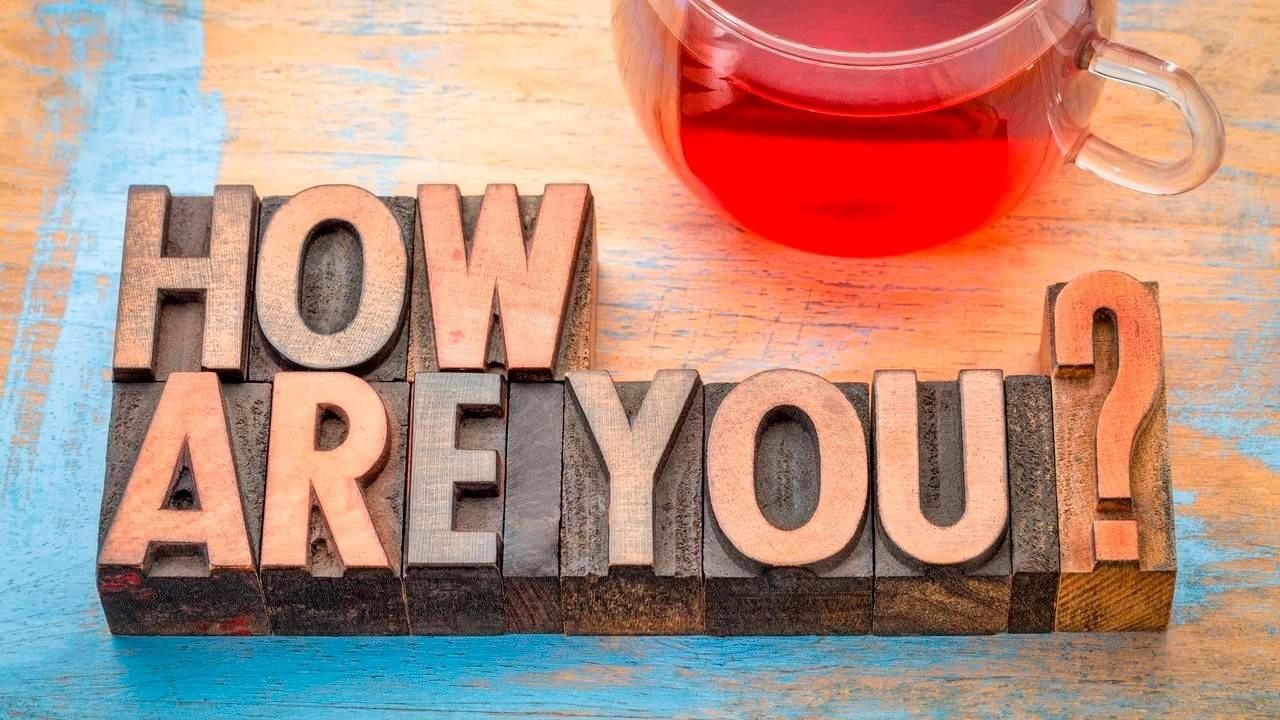
How Are You Doing?
Oct 06, 2020How are you doing?
I'm just checking in to see how you are balancing all the "stuff" that we are currently surrounded with: a global pandemic and all the competing news and advice that goes with it, a country divided with so much intolerance and hatred, it's hard to fathom - even if you don't live in the U.S., and a record year of natural disasters from wildfires to devastating floods from an especially active hurricane season.
It's difficult to make it through a day without be assaulted by more bad news.
So, how are you coping?
As I talk regularly to friends, clients and other business associates to check in, most seem fine, but I sense an underlying stress level unlike anything I've felt or seen before. People miss their colleagues, their friends, and their families -- and Zoom meetings, parties and reunions are just not cutting it.
In a time in which almost all of us have spent more time at home than ever, some seem to take it in stride while others are climbing the walls. There's a big increase in domestic violence and everything from clenching jaws to back spasms to headaches to insomnia.
And while many have used the time to learn new skills and rediscover old passions, like cooking and baking, some are binge watching Netflix and Amazon Prime, reading more books than ever or glued to Social Media. I’m in favor of whatever works for you.
Among the people in my circle, it seems people are up and down. One day, they feel optimistic and positive about everything they are doing; the next day, sad and depressed about everything they can't do. It's a roller coaster for sure. And such is the way of grief. Because, after all, we have lost a lot: our sense of freedom, our sense of connection and, in some cases, we've suffered the loss of people we care about.
I admit I will always find it awkward to not greet people with a hug or handshake and yet, I understand the need to be safe. I've always believed, however, that we need physical contact with others in the form of daily hugs.
It's hard to know what's the right thing to do and not do, since the "experts" don't all agree; however, the more time we are in this twilight zone, the more knowledgeable we seem to become and there does seem to be more consensus on the best practices and things to avoid. That said, there are still plenty of non-believers who are either cavalier about their chances of contacting the virus or they don't credit the same experts as I might. For sure, it is a big fat mess. Who knows where it all ends? And what the world looks like then and what life looks like?
That degree of uncertainty -- where we are headed and how long it will take to get there -- is certainly unprecedented in our experience. And, that makes me think of the Stockdale Paradox. Admiral Stockdale was responsible for his fellow prisoners of war during the Korean conflict. What he learned from that experience is that there are two things a leader must do in that degree of uncertainty about what to expect and how long it will last. (Sound familiar?)
Number one is to be brutally honest; false hope is actually detrimental to our mental health. And number two is to provide a rational basis for hope: here is how we will make our way through this.
That advice holds up well in our present circumstances. Being in denial about the devastating effects of the virus or your risk of exposure is not helpful - to you or to others. Better to face facts. And take necessary precautions.
Having a positive path for making your way through all this is important as well. And that doesn't mean you have to deny bad days now and then. This situation gets to all of us, at times. Give yourself permission to be angry or sad or depressed or frustrated -- and then, find a way to move forward.
Remember we're all in this together, even if it doesn't always seem that way. And even though we are all in it, our experiences are as unique as we are, so cut other people some slack.
The false hope part of the Stockdale Paradox is interesting too. He said that POWs that held on to false hopes -- like "this will all be over by Christmas and we’ll be going home" were least likely to survive. Those that took one day at a time and dealt with the reality in front of them as best they could, did so much better.
So, I want to know. How are you doing? I’d love to hear from you. Just reply to this email. Or, if you want to share a virtual cup of coffee or tea to share experiences, challenges and what you’ve learned or gained, I’m game. Schedule a call here: https://bit.ly/Cheryl15
Schedule a Discovery Session with Cheryl

